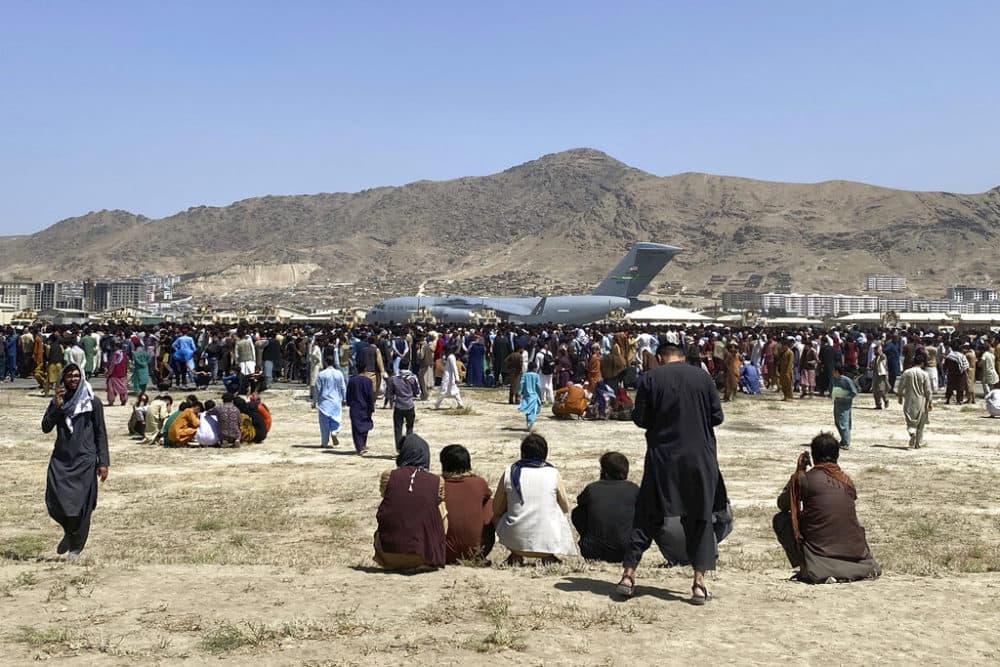Advertisement
What's Next For Afghan Refugees?
Resume
Since August 14, the United States has evacuated over 58,000 Americans and Afghan allies out of Afghanistan. For Afghan refugees looking to live in the United States, they must now apply for a Special Immigrant Visa, or SIV. Several Massachusetts organizations, including the International Institute of New England, are assisting in resettling Afghan refugees and special immigrant visa holders as they evacuate the country.
We speak with Sayed, who resettled here with his wife in 2019, but worries about his family still in Afghanistan. We also hear from Emma Tobin, Chief Program Officer for the International Institute of New England, who assisted Sayed with his visa.
Note: We've omitted Sayed's last name to preserve his anonymity and protect his family still living in Afghanistan.
This segment aired on August 24, 2021.